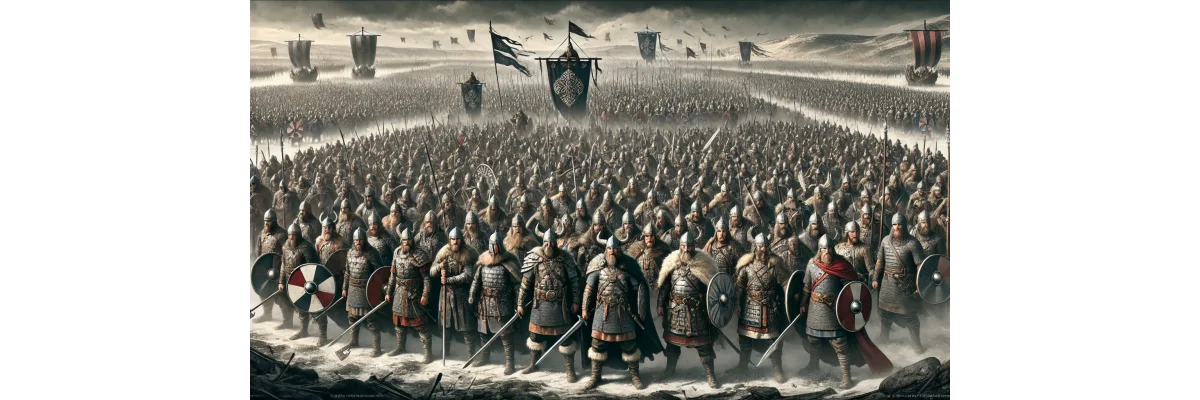Tyr: The God of War, Justice, and Sacrifice in Norse Mythology
In Norse mythology, Tyr is one of the oldest and most significant gods. As the god of war, justice, law, and sacrifice, he plays a central role in Viking tales and the Norse worldview. Tyr is seen as the embodiment of courage, wisdom, and divine order, and his sacrifice for the benefit of gods and humans has made him a revered yet tragic figure.
This blog post explores the various aspects of Tyr—his mythological role, his symbolism, and how his influence has endured in Norse culture and beyond.
Tyr in Norse Mythology
Tyr is one of the twelve principal gods of the Norse pantheon, the Aesir, who reside in Asgard. He is the son of Bör and Bestla and a brother to Wotan (Odin). Although often regarded as a god of war, Tyr also has strong ties to justice and law. Unlike other war gods such as Thor, who is associated with brute force and destruction, Tyr represents the divine order in war and justice.
The name "Tyr" is often linked to the Old Norse word for "god" or "sky," reflecting his role as a divine authority. Tyr is also viewed as the god who upholds law and conducts warfare with higher moral principles.
Tyr's Most Famous Story: The Sacrifice to Fenrir
The most well-known and striking story of Tyr is the binding of the wolf Fenrir. Fenrir, a giant wolf, was the offspring of Loki and the giantess Angrboda. As Fenrir grew, he became so powerful that he posed a threat to the gods, especially Odin, as it was foretold that Fenrir would devour Odin during Ragnarök, the final battle of the gods.
To restrain Fenrir, the gods enlisted the dwarves to forge an unbreakable chain called Gleipnir. Fenrir, suspicious of the gods, demanded that one of them place their hand in his mouth as a sign of trust while he was bound. Tyr, the god of justice, was the only one brave enough to make this sacrifice. When Fenrir realized he had been tricked, he bit off Tyr's right hand.
Tyr's sacrifice symbolizes selflessness and noble character, qualities often emphasized in Norse mythology. He willingly gave up his hand in the service of gods and humanity to prevent impending chaos. This tale portrays Tyr as a god willing to sacrifice everything to preserve divine balance and ensure the greater good.
Tyr's Role as the God of Justice
In addition to being a war god, Tyr is the god of law and justice. In Norse societies, where conflict was common, clear laws and moral guidelines were essential to governing both warriors and daily life. Tyr was often invoked to resolve disputes and determine matters of right and wrong.
In the sagas and eddas, Tyr frequently appears as the god called upon to mediate conflicts and uphold justice. His dual role as a god of war and justice made him revered both in times of peace and war.
The Symbolism of Tyr
Tyr is often depicted in Norse mythology as a god embodying the principles of order, sacrifice, and justice. Here are some central symbols associated with him:
The Sword and Weapon
Tyr is often shown holding a weapon, highlighting his connection to warfare and martial justice. In many depictions, he carries a sword symbolizing his role as a warrior and enforcer of divine law.
The Wolf Fenrir
Fenrir is a central symbol of Tyr's sacrifice. The wolf represents chaos, which Tyr contained through his bravery and selflessness. Fenrir serves as a reminder of uncontrolled power that must be subdued through discipline and justice.
The Right Hand
Tyr’s missing hand is a powerful symbol of self-sacrifice and the price of serving the greater good. It reflects the conflict between personal loss and the common good, a recurring theme in Norse mythology.
Tyr in Modern Culture
Today, Tyr is less well-known than other Norse gods such as Odin or Thor, but his influence persists. He remains a symbol of justice and self-sacrifice. In modern depictions of Norse mythology, particularly in literature, films, and TV series, Tyr often appears as the god who upholds law and advocates for what is right, even at great personal cost.
Tyr is featured in popular TV shows like Vikings, where he is portrayed as a strong, just, and respected figure. In video games such as the God of War series, Tyr is a key figure associated with themes of justice, war, and sacrifice.
Conclusion: Tyr – The God of War and Justice
Tyr remains one of the central figures of Norse mythology, embodying ideals of courage, justice, and sacrifice. He is not only a war god but also a guardian of law, preserving divine balance between order and chaos. His story, particularly the sacrifice to Fenrir, positions him as a heroic and tragic figure, demonstrating that true strength often comes with great personal cost.
In a world shaped by wars, conflicts, and challenges, Tyr serves as a timeless reminder that justice and order can only be achieved through sacrifice and selflessness.


 German
German













